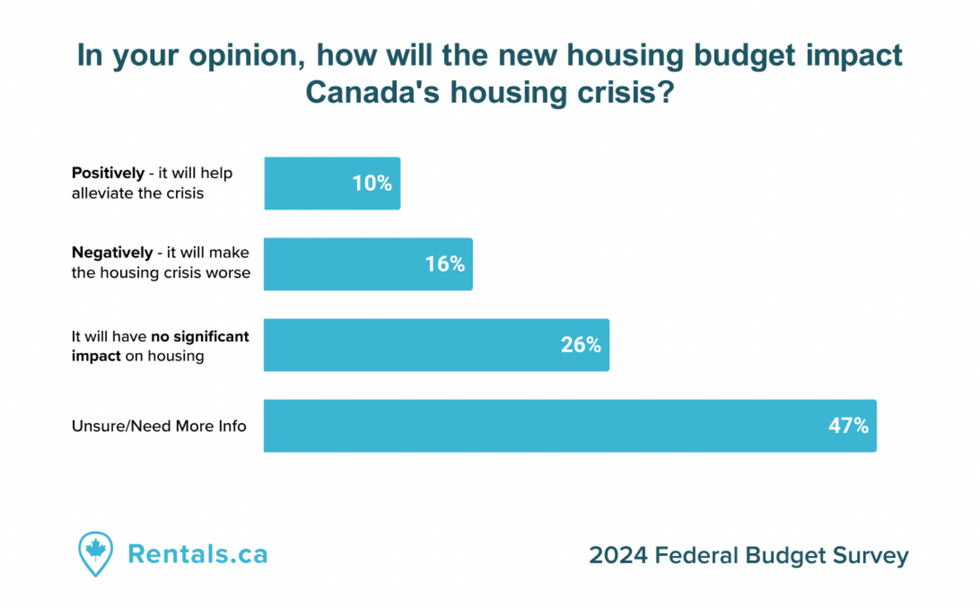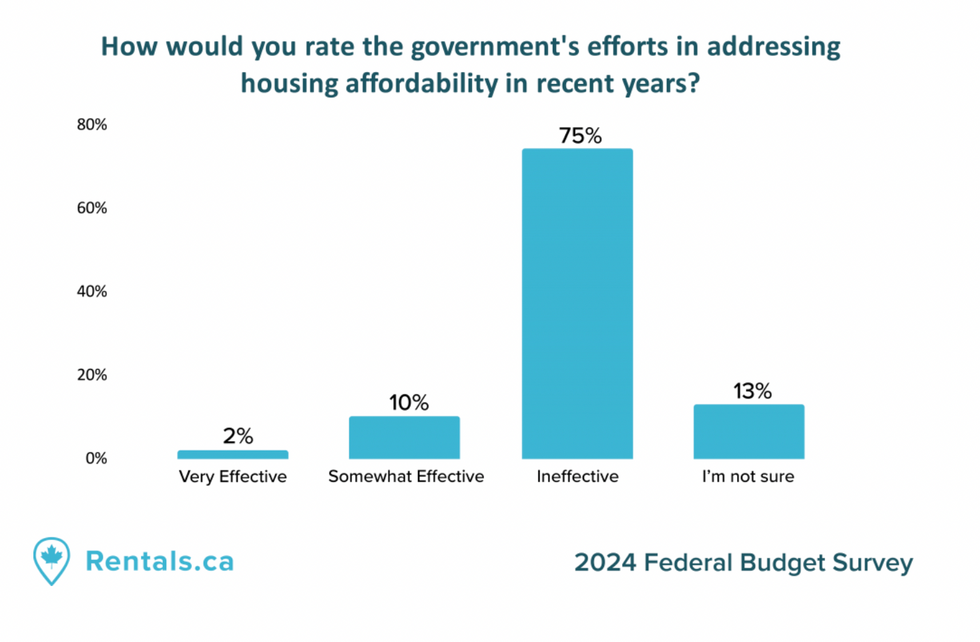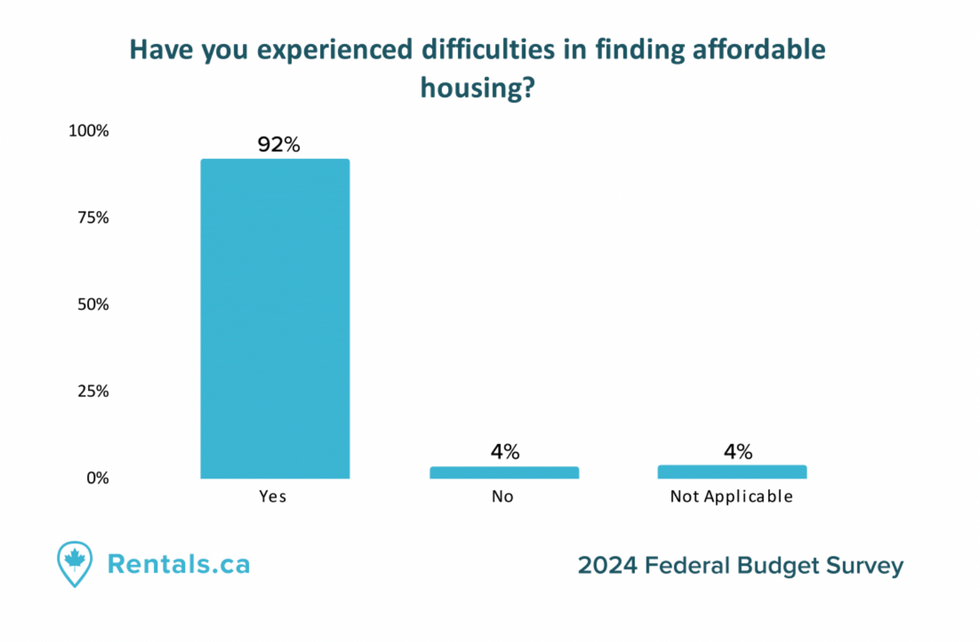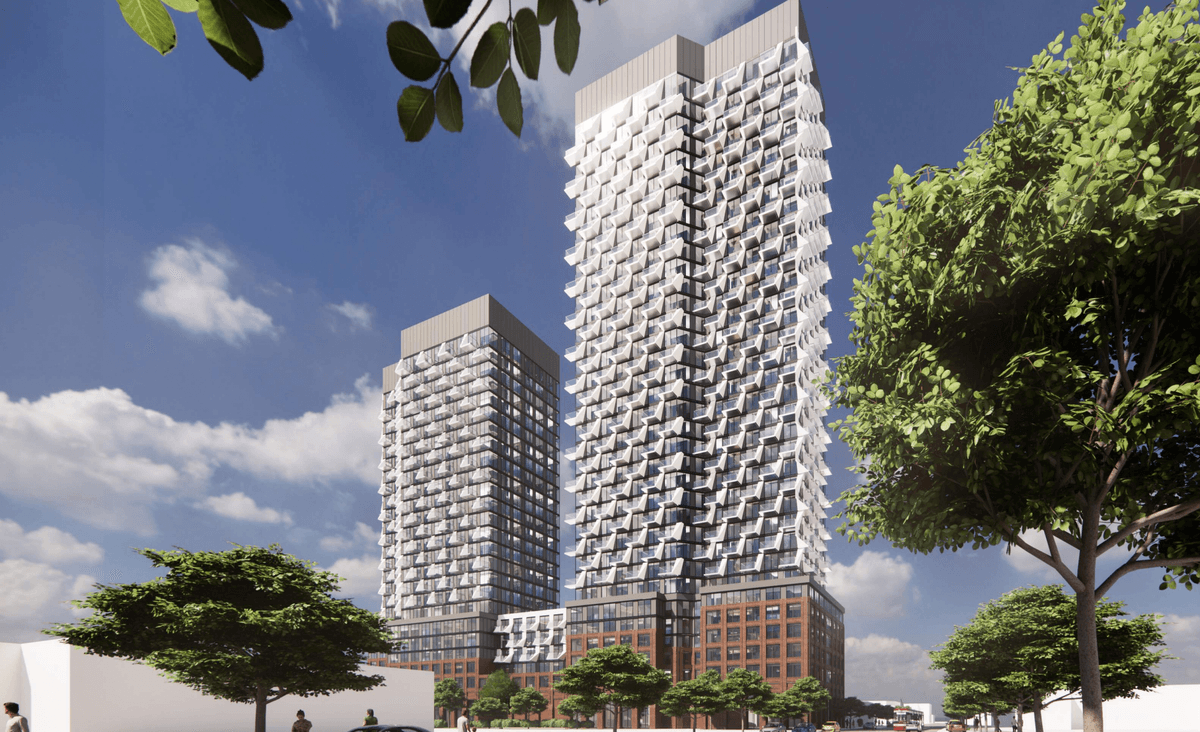Canadian renters aren’t blown away by Prime Minister Justin Trudeau’s recent announcements designed (in theory, at least) to empower and protect the country’s tenants. As part of the federal government’s recently-released Budget 2024 – one that’s jam-packed with measures aimed to tackle the country’s housing affordability crisis – Trudeau introduced new protections for renters.
As it turns out, however, many are in the dark. And those who've seen the light aren’t exactly thrilled by its glow.
According to a survey of 437 Canadian renters conducted by Rentals.ca, 66% of respondents stated they were aware of the recent 2024 federal budget. However, only 54% reported awareness of the specific housing-related provisions outlined in the budget.
For renters, Trudeau's budget introduces a Canadian Renters' Bill of Rights and the launch of a $1.5B Tenant Protection Fund to offer funding to legal services and tenants’ rights advocacy organizations to better protect tenants against unfairly rising rent payments, renovictions, or bad landlords. Canadian Renters' Bill of Rights.The government is also helping Canadians who can’t afford a home by creating more affordable and rental housing. This means $1B for the Affordable Housing Fund to build affordable homes, launching a permanent Rapid Housing Stream, and the launch of a $1.5B Canada Rental Protection Fund to protect and expand affordable housing. The plan also introduced the idea of leveraging rental payment history to improve credit scores, helping potential homebuyers qualify for a mortgage and better rates.
Despite all these efforts, renters remain skeptical. When asked about their confidence in the federal budget’s measures to make housing more affordable, only 10% of respondents felt that it would positively impact the housing crisis. Conversely, 42% believed it would have a negative impact or no significant effect at all. The largest group of respondents, representing 47%, expressed a need for more information before they could have an informed opinion.
The survey revealed that 74% of renters rated the government and its budget as “ineffective” in addressing housing affordability, with only 2% of respondents viewing their efforts as effective.
In addition to the quantitative data collected, Rentals.ca also gathered qualitative insights through an open-ended question that invited respondents to share their views on specific measures the government should prioritize to tackle the housing crisis. Analysis of the 253 write-in responses revealed recurring themes, with affordability – not surprisingly – emerging as the most pressing concern. Many respondents emphasized the urgent need for more rent control measures, advocating for government intervention to stabilize rental prices. Immigration and foreign investment were also cited as significant factors impacting the availability of rental housing.
On the subject of current rental satisfaction, 92% of renters expressed difficulty in finding affordable housing. This sentiment is further reflected in their responses to the question: “On a scale of 1 to 10, how concerned are you about the current state of the housing market in Canada?” The average sentiment was a 9.
Despite mixed feelings about policy effectiveness, 67% of respondents indicated they were unlikely to purchase a property in the near future, demonstrating a strong reluctance among renters to transition to homeownership. Of those surveyed, 14% stated they were somewhat likely, with only 8% indicating a high likelihood of purchasing a home shortly.
Trudeau’s efforts, however received – as well as the survey – come at a time when the rental market has been characterized by increased competition and sky-high rents in recent years.
“The responses from Rentals.ca’s survey paint a vivid picture of the Canadian rental landscape in response to the new federal budget,” concludes the report. “While there is a clear recognition of the government’s efforts, the prevailing skepticism and concern among renters highlight the challenges ahead. Understanding these insights will be crucial for policymakers and industry stakeholders to foster a more responsive and inclusive housing environment.”
According to the latest figures from rentals.ca, rents for all residential property types in Canada averaged $2,181 in March, rising 8.8% from a year ago. The annual rate of rental growth slowed somewhat from the 10.5% annual growth recorded in February, as rents experienced a 0.6% month-over-month decrease in March.
























